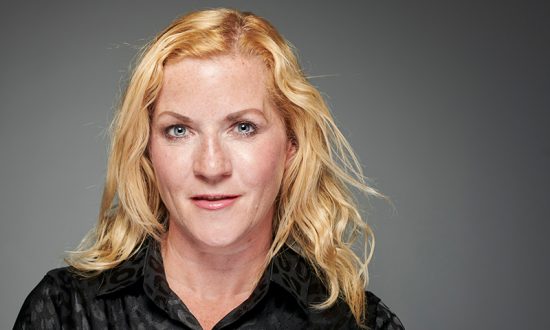Shona Hirons is an award-winning global Resilience and Burnout Coach. A breakdown from work-related stress, which led to a life-changing accident, requiring major facial reconstructive surgery and brain damage, gave her a big wake-up call. During her recovery, she went on a journey of self-discovery to rebuild her resilience, consider her values, and achieve all the things she was told she couldn’t do. Shona has developed strategies to boost her resilience, and now helps others to do the same. She is the CEO of Mindset in Motion, and a leader in corporate wellbeing, working with corporate clients in over 55 countries. Her mission: To improve the well-being of people and businesses throughout the world.
We live in a world fixated on flawless outcomes and picture-perfect achievements. The pursuit for perfection often overshadows the true hero of success: consistency. Having been brought up with a perfectionist mindset that turned me into feeling like a failure if I fell anything shy of perfect, which led to me becoming burnt out, I’ve learnt that it’s consistency that emerges as the unsung champion in the realm of achieving goals.
Imagine a marathon where the finish line represents our goals. Perfectionists might start with an explosive burst of energy, striving for faultless strides, yet often stumble under the weight of their impossibly high standards. On the contrary, the consistent player maintains a steady pace, focusing on progress over perfection, ultimately crossing the finish line with resilience and determination.
Consistency breeds progress. It is the commitment to showing up every day, even when motivation wanes or obstacles arise. Perfection demands flawlessness from the start, often leading to procrastination or paralysis by analysis. In contrast, consistency acknowledges that progress, no matter how small, is a step closer to the goal. I’ve come to realise that slow and steady yields longer-lasting achievable results.
Consider the case of skill development. Whether it’s learning a musical instrument or mastering a new language, the daily commitment to practice, even for a short duration, outshines sporadic, marathon sessions. Consistent, deliberate practice hones abilities and leads to gradual improvement, and you’ll soon become the master.
One thing to remember, is you don’t have to be good to get started, but you do have to get started to be good. In the past my mindset was in the wrong place. I wouldn’t try something if I wasn’t good at it immediately, but following a life-changing accident in 2017 that was caused by burnout, which was partly caused my perfectionist mindset, I was bed bound for months and couldn’t do all the things I’d been good at and loved doing, so for the sake of my sanity and general health, I had to find something to fill the gap.
Over several months, I learnt how to play the guitar and crochet. Was I good at either before I started? Absolutely not, but with consistency and practice I became good. I’m fine with not being perfect, but I have fun, and this has improved my whole mindset and the way I approach everything in life now.
Moreover, consistency cultivates habits, and it is in these habits that success finds its breeding ground. Small, repeated actions compound over time, forming the building blocks for accomplishments. From the entrepreneur building a business brick by brick to the student mastering a subject through regular study sessions, it’s the consistent effort that lays the foundation for success.
In the pursuit of goals, setbacks and failures are inevitable. I set myself a big goal to climb Kiliminjaro in February 2024, which would mark seven years since my life-changing accident, where I was told there would be things, I’d never be able to achieve again, and one of those things involved reaching high altitude, due to the pressure on my brain. Unfortunately, the company that I booked the challenge with had to cancel the expedition due to low numbers. At first, I was disappointed, because this date was symbolic to me.
My old perfectionist mindset would have viewed this as an insurmountable barrier, but I’ve continued with my training, and by committing to consistency has made me embrace this setback as part of the journey. I’ll still complete the challenge, but at a different time and I’m still going to do a virtual climb of Kiliminjaro on the original dates that I picked instead.
Consistency makes you resilient and teaches you the valuable lessons that failures are stepping stones, not roadblocks, on the path to success.
The psychological impact of consistency cannot be overlooked. It creates a sense of momentum and instills confidence. When progress is visible, no matter how incremental, it fuels motivation, propelling us closer to our goals.
It’s essential to distinguish between striving for excellence and chasing perfection. Excellence allows room for growth and acknowledges that improvement is a continual process. Perfection, on the other hand, often paralyses progress, as the pursuit for flawlessness becomes unrealistic.
My mantra has become progress over perfection. I celebrate the small wins, the daily strides taken toward the goal. I’m embracing the journey and understand that consistency is the guiding force that outshines the mirage of perfection.
In conclusion, consistency triumphs over perfection in the pursuit of goals. It’s the unwavering commitment, the persistent effort, and the willingness to progress, imperfectly yet consistently, that ultimately lead to success. As Aristotle aptly said, “We are what we repeatedly do. Excellence, then, is not an act, but a habit.” Therefore, let consistency be the cornerstone of your journey towards achieving your goals.


